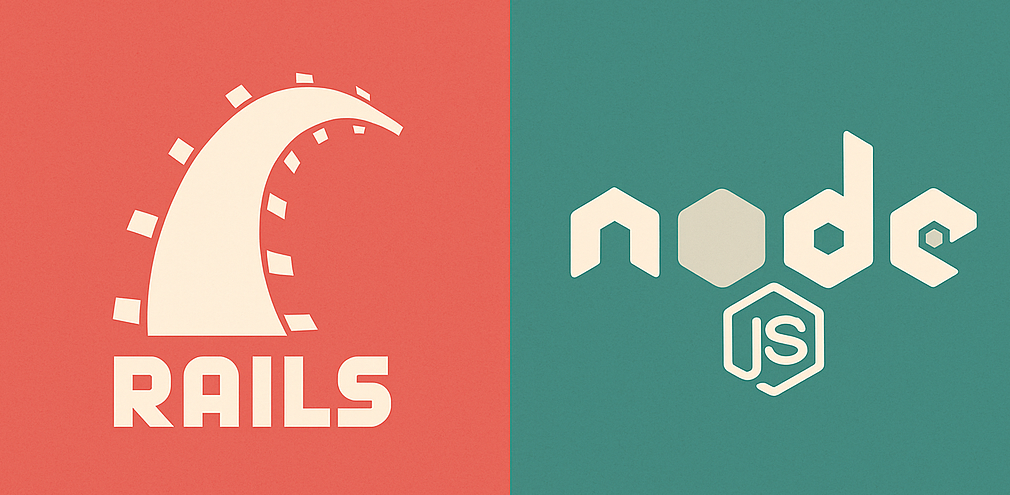
Why Ruby on Rails Simplifies Backend Development Compared to Node.js
Why Ruby on Rails Simplifies Backend Development Compared to Node.js
I’ve recently started exploring backend development with Ruby on Rails after extensive experience with Node.js, and the differences have been eye-opening. Rails emphasizes simplicity and productivity, which can dramatically reduce the number of lines of code and streamline development workflows.
Less Boilerplate, More Productivity
Rails follows the principle of “Convention over Configuration,” significantly cutting down setup time. With Active Record, handling database interactions feels almost effortless compared to the manual ORM setup typically required in Node.js frameworks.
Example: Defining a model in Rails:
class User < ApplicationRecord
validates :name, presence: true
endEquivalent setup in Node.js (Express & Sequelize):
const { Sequelize, DataTypes } = require('sequelize');
const sequelize = new Sequelize('database', 'username', 'password');
const User = sequelize.define('User', {
name: {
type: DataTypes.STRING,
allowNull: false,
},
});
module.exports = User;Controllers: Rails vs Node.js
The simplicity of Rails controllers contributes significantly to its streamlined approach. Rails controllers come with built-in conventions that handle common tasks such as parameter parsing, responses, and rendering views or JSON responses with minimal explicit coding.
Rails Controller Example:
class UsersController < ApplicationController
def index
@users = User.all
render json: @users
end
def show
@user = User.find(params[:id])
render json: @user
end
def create
@user = User.new(user_params)
if @user.save
render json: @user, status: :created
else
render json: @user.errors, status: :unprocessable_entity
end
end
private
def user_params
params.require(:user).permit(:name)
end
endBy contrast, in Node.js (Express), controllers require more explicit handling of requests, responses, validation, and error handling.
Node.js Controller Example:
const express = require('express');
const router = express.Router();
const User = require('./models/User');
// Get all users
router.get('/', async (req, res) => {
try {
const users = await User.findAll();
res.json(users);
} catch (error) {
res.status(500).json({ error: 'Internal server error' });
}
});
// Get a single user
router.get('/:id', async (req, res) => {
try {
const user = await User.findByPk(req.params.id);
if (user) {
res.json(user);
} else {
res.status(404).json({ error: 'User not found' });
}
} catch (error) {
res.status(500).json({ error: 'Internal server error' });
}
});
// Create a user
router.post('/', async (req, res) => {
try {
const user = await User.create({ name: req.body.name });
res.status(201).json(user);
} catch (error) {
res.status(400).json({ error: 'Failed to create user' });
}
});
module.exports = router;As you can see, Rails controllers manage many tasks automatically, whereas Express controllers need explicit logic for routing, request parsing, error handling, and response formation.
Rapid API Development
Creating RESTful APIs in Rails is streamlined through built-in helpers and automatic routing:
# routes.rb
resources :usersThis single line automatically creates standard RESTful routes (index, show, create, update, delete). Achieving similar functionality in Node.js frameworks often involves more manual setup and explicit route definitions.
Conclusion
Both Rails and Node.js have their strengths, but for developers prioritizing simplicity, minimal boilerplate, and rapid development, Rails offers compelling advantages. My journey continues, but the initial experience suggests Rails could significantly boost productivity for backend development.
Have you explored both Rails and Node.js? I’d love to hear your insights and experiences!
